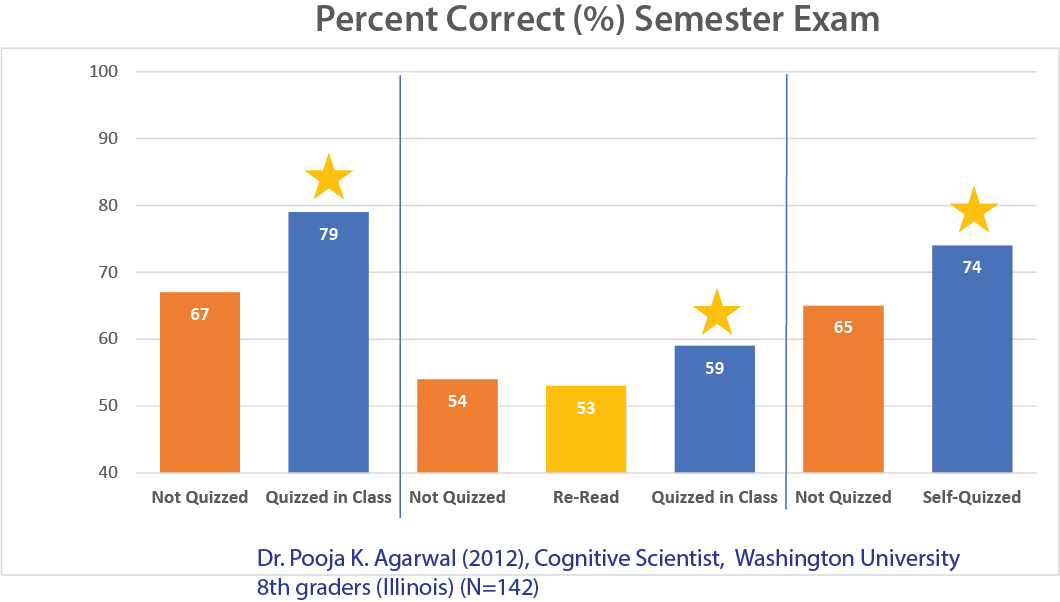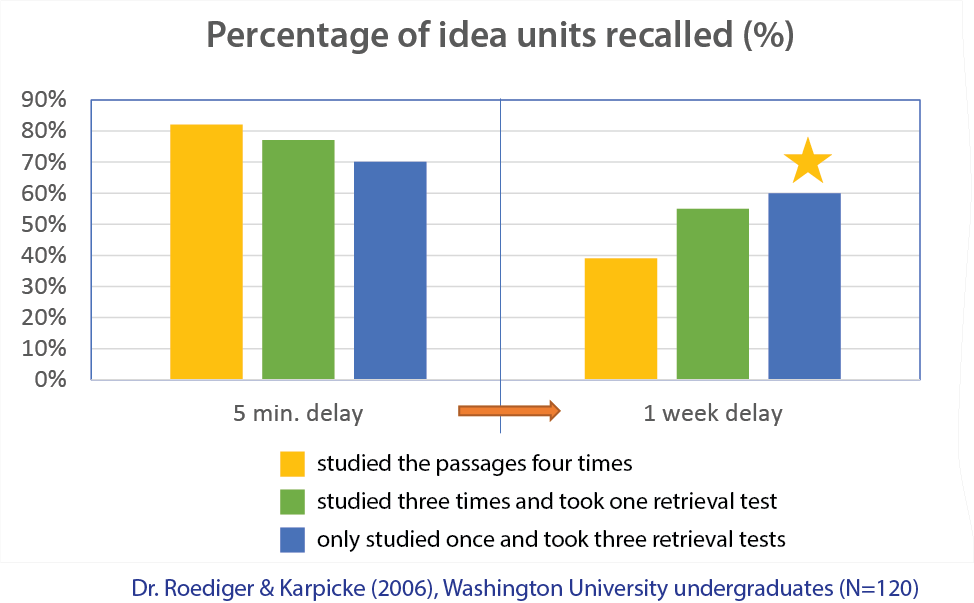
English Learning App Free
BimoBila creates your learning materials
BimoBila is a new type of English learning app free that allows you to learn from the English you find around you.
You can choose English content from textbooks, magazines, computer or TV screens.
Just take a picture.
Quizzes are automatically generated.
Listen, speak, and play, all from the BimoBila app.
For your own progress
1. Quiz mode
BimoBila generates quizzes directly from the material you capture.
BimoBila also uses an algorithm of “Spaced repetition” for efficient learning.
2. Listen/Speak mode
Capture

Listen/speak
3. Edit mode:
- The content of the quiz can be edited to suit your own preferences and learning level.
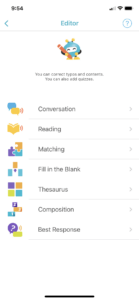
- You can create a “Best Response ” quizzes from the editor.
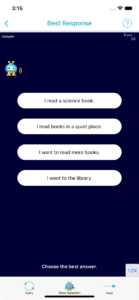
Let's play!
- Look for English around you and take pictures.
- Practice speaking with Bimo.
- Have fun with games and quizzes.
The power of retrieval practice
Don’t re-read, let’s retrieve!
Many of us think that tests or quizzes are only for evaluating, and when we review learning material, we typically focus on cramming information into our heads, by re-reading, highlighting key ideas, taking notes, and so on.
However, tests (and quizzes) are not just for assessments. They are a powerful tool for improving learning through a technique called retrieval practice.
Re-reading or taking notes is an outside-in process of trying to stuff information into your brain, which leads to short-term learning. On the other hand, testing is an inside-out process of retrieving information from memory, and doing so repetitively leads to long-term learning.
Retrieval practice has gained the attention of psychologists and cognitive scientists over the past decade.
Cognitive scientist Henry L. Roediger and his colleagues at Washington University demonstrated that retrieval practice was highly effective for long-term learning through a 5-year study involving more than 1,400 middle school students [1]. Retrieval practice came in the form of frequent, low-stakes quizzes throughout the semester.
The students themselves recognized the benefits of retrieval-based learning. 97% reported that the quizzes increased their learning, and 65% felt that frequent quizzes decreased their test anxiety. As a result, there were significant benefits from these quizzes, and some students even saw their grades rise from C to A.
A long-term study performed on middle school social studies classes with and without multiple-choice chapter quizzes for each topic.
Among the three study groups, students who took quizzes throughout the course (■) had better final exam results than those who did not (■). Simply re-reading the material did not result in higher test scores (■).
An earlier study shows the long-term retention effects of retrieval practice [2]. Students who only studied for a test (without intermediate quizzes) felt more confident and performed well on the immediate test, but performed poorly on a review test one week later. However, students who took multiple quizzes after just one study session retained the information and performed better after one week than those who just studied.
Results of a study where students studied 250 word passages and took free-recall tests afterwards. The students were divided into three groups: those who studied the passages four times ( ■), those who studied three times and took one retrieval test (■), and those who only studied once and took three retrieval tests (■). Immediately after studying, the study-only group saw a modest advantage. However, the exact opposite pattern was observed one week later, as students who studied less but took more retrieval tests retained up to 21% more information.
Another study by cognitive scientists Jeffrey D. Karpicke and Althea Bauernschmidt at Purdue University shows that spaced repetition in particular—not just any kind of repeated retrieval—dramatically improves long-term retention [3].
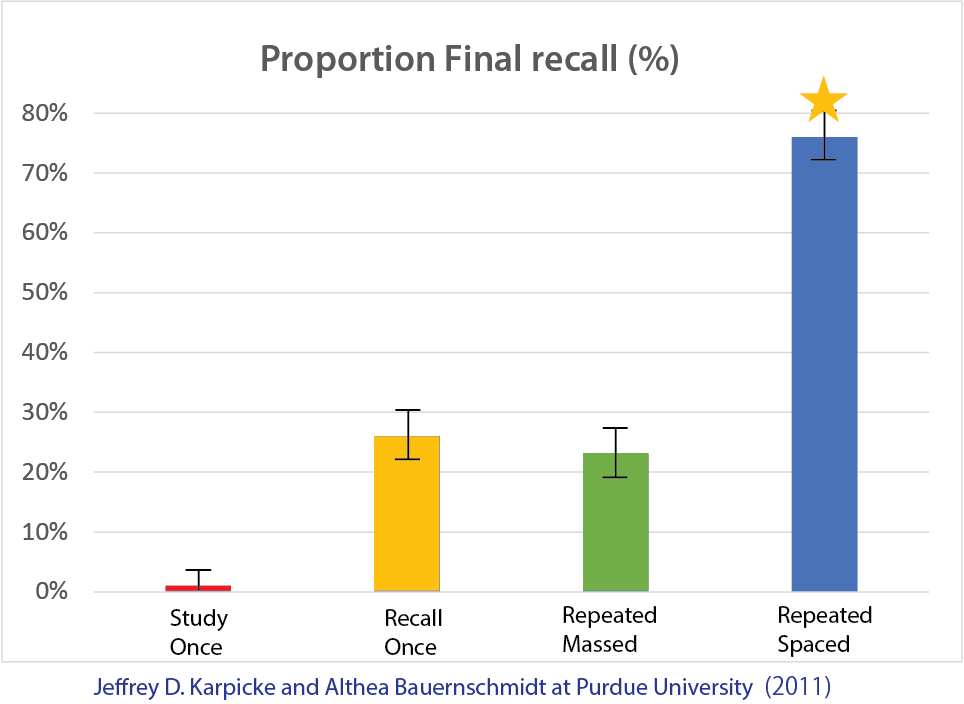
Results of a study where students tried to learn vocabulary word translations [3]. Students who just studied once (■) performed poorly. Those who retrieved each translation once from memory and then stopped (■) saw a small boost in performance. Those who did not stop but repeated retrieval three times immediately after (■) saw no benefit. Those who repeated retrieval three times over spaced intervals (■) saw a dramatic improvement.
What these observations reveal is that spaced retrieval practice is a powerful tool to boost learning. Learners who consistently try to recall information through repetitively spaced quizzes perform the best over the long term.
There are many other studies showing evidence of the benefit of retrieval practice. Here are a few more resources:
References:
BimBIla- English Learning App Free:
Our goal is to bring the full benefits of quiz-based learning to new language learners.
We are looking for business partners who are willing to invest in sales, branding, and further development of the app to make it a better language learning tool.
If you have any questions, please contact us using the form below. We look forward to hearing from you.,


